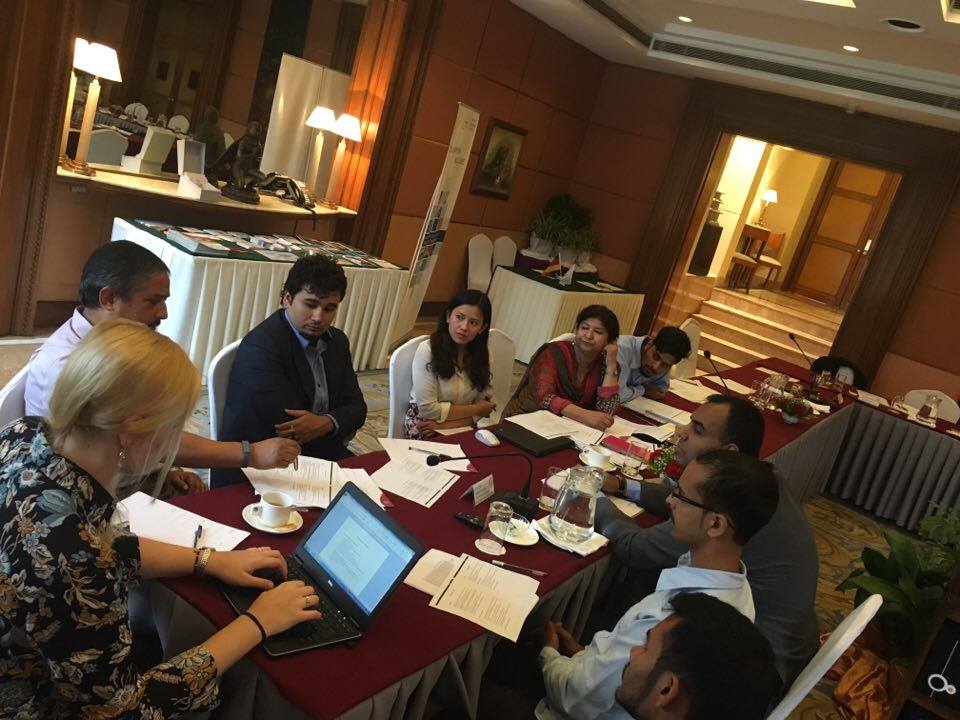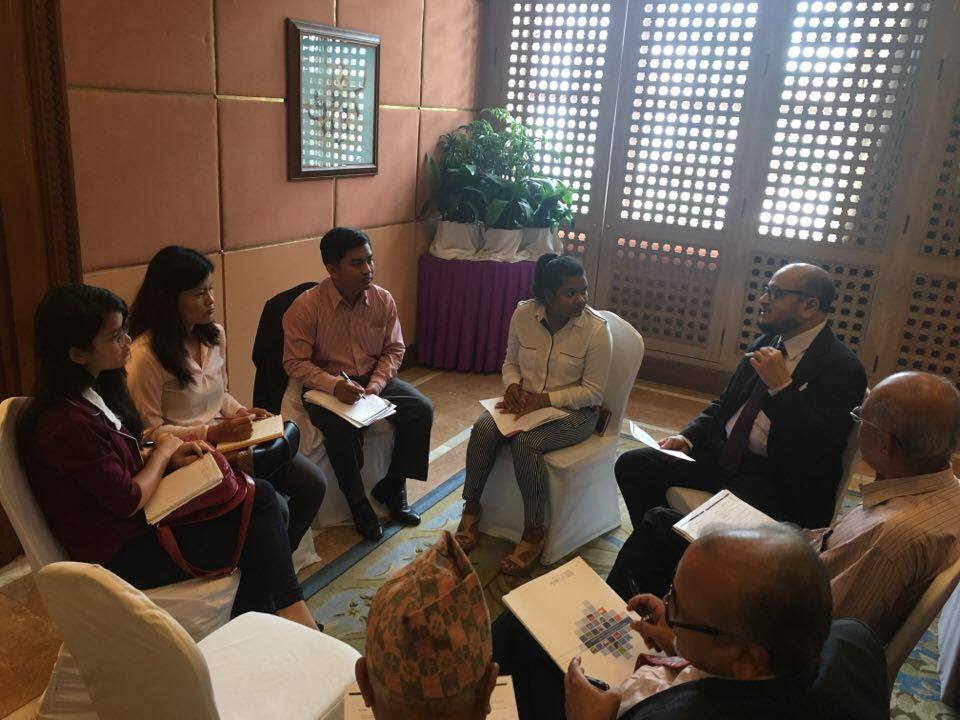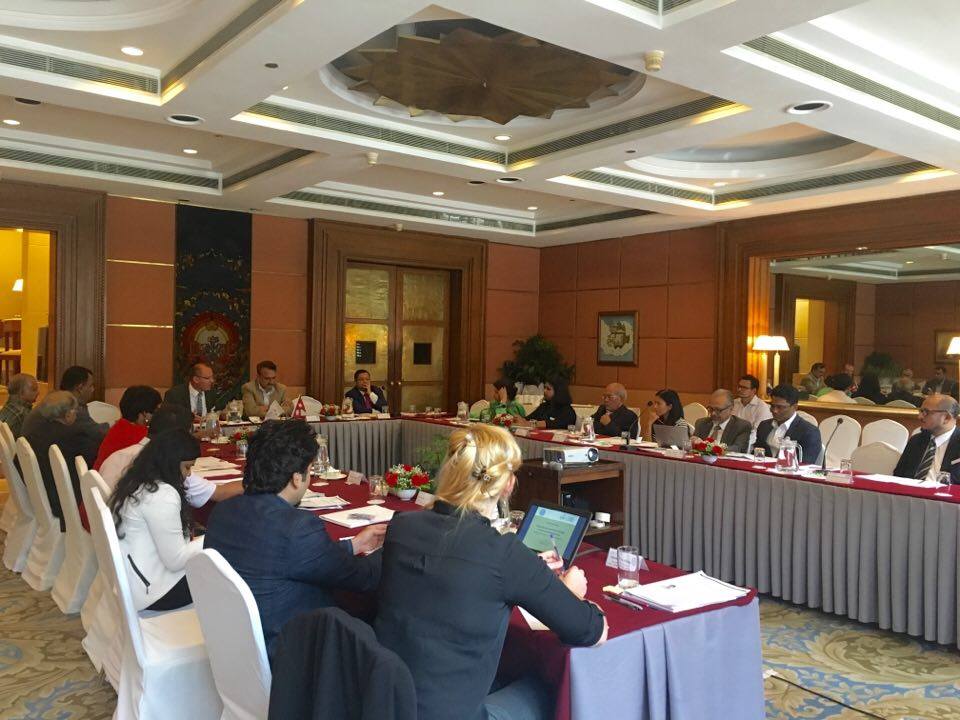
Kathmandu, Nepal; 03-05 July 2016: Rising sea-levels, severe droughts and floods, extreme weather events and the melting of the Himalaya glaciers are only a few consequences that the Asia-Pacific-Region is increasingly facing. Societies in South and South East Asia that already try to overcome poverty and underdevelopment are particularly affected. Many people who live on agriculture or settle in coastal or mountainous regions are at high risk. Weather-related crop failures or devastating meteorological events as a result of climate change threatens their livelihood. Especially the poorer population often do not have the capacity to adapt to the changing situations. Thus, promoting the adaptation to climate change is of high importance for the two sub-regions. Appropriate adaptation mechanisms can contribute to reduce the risk potential of countries and mitigate the risk of disastrous impacts.
Climate change has already dramatic impacts on South and South East Asia. Understanding the increasing threats and implementing necessary adaptation measures are essential for the future development of the countries within these regions
Together with experts from eight different South and South East Asian countries such as Cambodia, Vietnam, Thailand, Bangladesh, India, Sri Lanka, Pakistan and Nepal joint in the regional workshop which is co-organized by Regional Project Energy Security and Climate Change Asia-Pacific (KAP-RECAP) and Centre for South Asian Studies (CSAS) identified threats and challenges for the region and discuss different approaches to adapt to climate change. Basis for the discussion are the findings of a series of country studies that RECAP has initiated in order to map and analyze the challenges in various countries within South Asia.
Representatives of the central and local government, enterprises and non-governmental organizations will bring together different perspectives and promote the intra-regional and cross-sectoral dialogue. Finally, future adaptation strategy proposals will be developed in working groups and presented among the participants.
Mr. Sey Peou, a Secretariat of NGOs Environment and Climate Change Alliance also Climate Change Policy Monitoring Project Coordinator of NGO Forum on Cambodia participated by sharing our CSOs Experiences in Implementing Climate Change Adaptation (CCA) and Energy Sector in Cambodia. The challenge and lesson learnt on Climate Change and Environmental Issue as well as Joint Principle for Adaptation (JPA) principals have been presented to KAP-REACP exist and potential partners during this workshop. He addressed that Cambodia takes climate change both CSO, government as well as other stakeholder very seriously in its development agenda to support building a greener, low-carbon and resilient society and to contribute to the global efforts to address climate change, Cambodia stands on a position that the new agreement on climate change should be built on the key principles of the UNFCCC, in particular the common but differentiated responsibilities and respective capabilities and in ensuring sustainable development of developing countries. Cambodia continuously expresses its determination to engage in strategies to decrease GHG emission through the implementation of the CDM; NAMAs, INDCs and NDCs. However, Cambodia, among ASEAN members is the most vulnerable due to adaptive capacity and limit resource to respond to change the climate.
Agriculture, roads/irrigation infrastructures, climate sensitive diseases, urban infrastructures etc had affected by climate change so far. Additional it is a stress on our economic and social systems, with an impact on human security (food security, health, access to water, migrations…).

Regarding to energy sector in Cambodia, NGOF with other partners and members co-organized the launching Workshop on Cambodia Renewable Energy Report: Alternative Green Solution by March 2016. The report stated that Cambodia has an opportunity to become a leader in clean, renewable electricity as renewable energy sources such as sun, wind, water and biomass energy abound. Choices made in the coming months and years could lead to seizing opportunities to leapfrog and embrace the best technologies now or to continued overreliance on heavily polluting, high carbon fossil fuel power generation, non-sustainable hydro power projects or even to a dependence on risky and costly nuclear power.
Over 6 million people do not yet have access to grid-quality electricity in Cambodia. Cambodia currently depends mainly on large scale hydro power and fossil fuels and its power development plan to 2030 continues that dependence.
